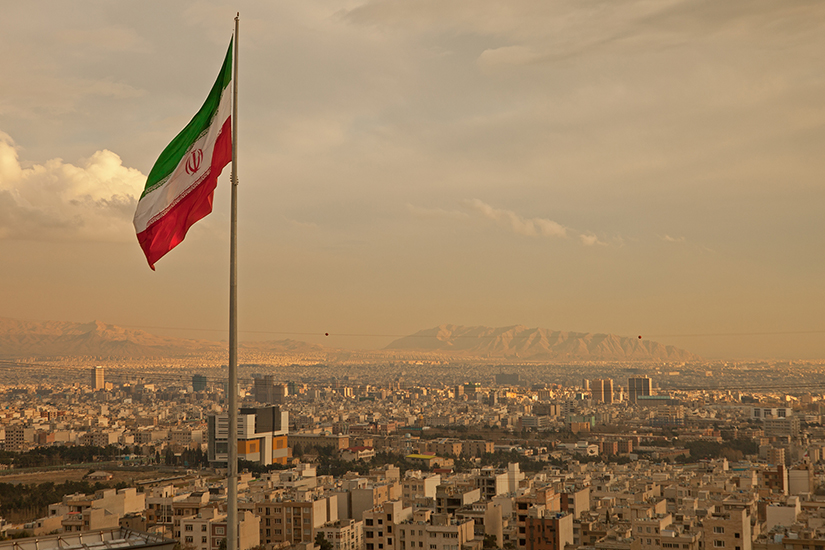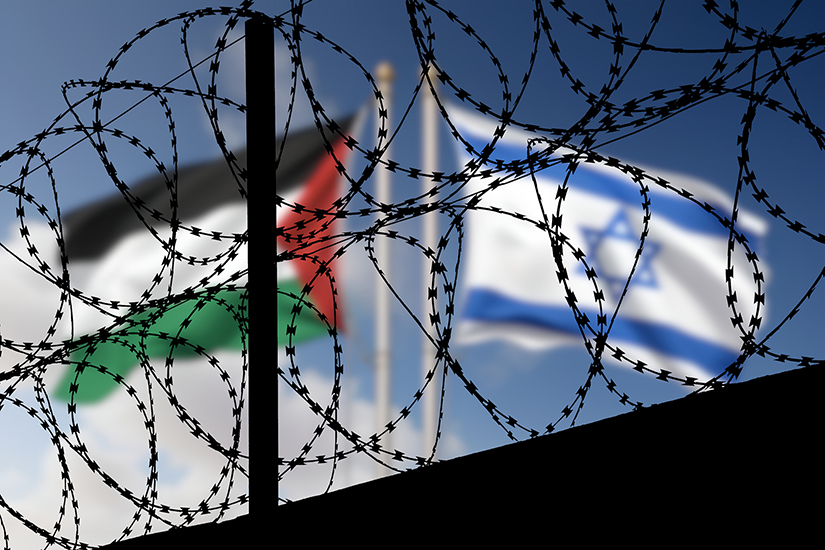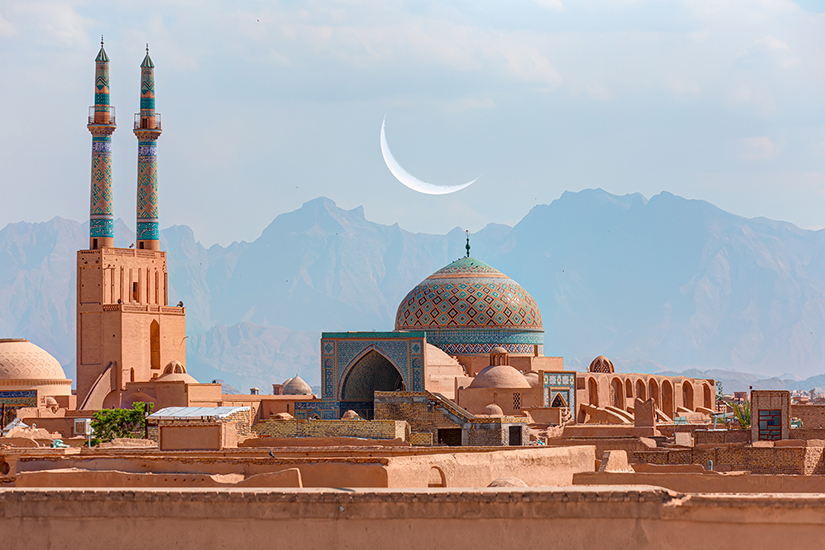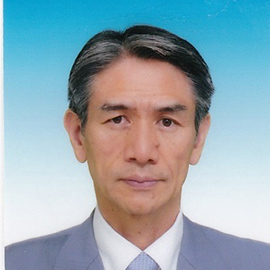On October 7, 2023, Hamas and other Palestinian militant groups [1] attacked towns and military bases in southern Israel. In response, Israel asserted its "right to self-defense," launching a military offensive against Gaza, which is under Palestinian interim self-government. This offensive has continued for over 50 days. This period has witnessed humanitarian violations such as the detention and murder of unarmed civilians.
This armed conflict is marked by several notable characteristics: firstly, by the emergence around the world of protest movements against these violations. These protest movements have given rise to fragmentation in countries such as the United States, the United Kingdom, and France, as well as dissonance within the European Union. The second characteristic is the debate on response measures at multilateral summits and other forums at the regional level. This debate has exposed clear-cut differences between the assertions of Europe and the United States and those of the Global South, which threaten the effectiveness of international norms and hinder the function of the United Nations and other international bodies.
This article will focus on Iran, which established a clear stance on the side of the Palestinian militant groups from the outset. It will examine the possibility that, based on these changes in the international community, the “Islamic resistance” movement supported by Iran, which is wary of Israel and the United States, may spread the conflict. Indeed, Iran defends the October 7 attack by Hamas and others on Israel as a national liberation movement rather than an act of terrorism. Is Iran, then, really adopting the kind of foreign policy that Israel and the United States decry as a menace? What follows is a consideration of Iran’s foreign policy through a comparison of Iranian diplomacy concerning the “war on terror” after the September 11, 2001 terrorist attacks in the United States and this armed conflict.

The “War on Terror” and Iran’s Response
When the United States, which Iran perceived as an enemy, suffered the September 11, 2001 terrorist attacks, Iranian President Muhammad Khatami condemned the attacks immediately, a criticism repeated by Iran’s Supreme Leader Ayatollah Ali Khamenei on September 17. It is thought that behind this condemnation lay the desire to clearly distinguish Iran, as a revolutionary regime engaged in armed conflict for the purpose of liberating the oppressed, from terrorists. It appears that there was also the intention to avoid being labeled a state sponsor of terrorism. [2]
Iran also cooperated with the United States to transport aid supplies to people in Afghanistan after the United States bombed Afghan bases controlled by the Taliban on October 7, as part of the “war on terror” related to this terrorist attack. This policy choice by the Khatami government prioritized the Iranian national interests of supporting Afghanistan’s Northern Alliance and weakening the Taliban, as well as preventing the influx of refugees from Afghanistan. [3] In this way, the Khamenei regime is prepared to work with the United States for the purpose of furthering Iran’s national interests.
Iran’s policy of prioritizing its national interests was also evident in the war against the Islamic State (IS). Maintaining the Shia network with Iraq and Syria is a key national interest for Iran. Therefore, the Islamic Revolutionary Guard Corps, together with Shia militia groups from both countries, strove to destroy IS independently of the United States and the coalition of the willing.
Iran’s Perception of a National Liberation Movement, Not an Act of Terrorism
What about the recent attack on Israel by Palestinian militant groups? On October 7, when the attack occurred, Iranian Foreign Ministry Spokesman Nasser Kanani asserted that “the Palestinians’ right to self-defense against occupation, aggression and organized terrorism by the Zionist regime is a legal right.” [4] President Ebrahim Raisi declared Iran’s support for the “legitimate defense” of the Palestinian people on October 8. [5] Then, on October 10, Ayatollah Khamenei remarked that the attack by Hamas and others had “managed to destroy some of the main structures of the occupying regime’s rule.” He also stated that the plan of attack was formulated by the Palestinians themselves, dispelling the idea that it had come from outside Palestine.[6]
No substantial progress has been made in peace talks on the Palestinian problem since the 2003 Oslo Accords. Meanwhile, under the Netanyahu government, Israel’s policy of occupation has led to the expansion of settlements, the suppression of human rights, and the frequent desecration of the holy Al-Aqsa Mosque. This, in turn, has fueled more vigorous armed uprisings by Palestinian militant groups. Israel and the United States characterize this uprising as terrorism, but the leaders of Iran see it as a Palestinian liberation movement.
Seen in this light, Israel’s present use of military force in Gaza would represent a “retaliatory” offensive against this national liberation movement, rather than part of the “war on terror.” However, whether this uprising represents the pursuit of the right to national self‐determination, whether or not this is a “war on terror,” there is a common issue at stake. That is: how far should the use of force be allowed?

How, then, does the international community perceive the Palestinian uprising and the use of military force? The United Nations General Assembly Resolution adopted on October 27 and the resolution of the joint summit between the Arab League and the Organisation of Islamic Cooperation on November 11 provide valuable reference points.
An Emergency Special Session meeting of the UN General Assembly on October 27, convened on a proposal by Jordan, adopted the proposed resolution on the current armed conflict: “Protection of civilians and upholding legal and humanitarian obligations.” There were 121 votes in favor of the proposed resolution and 14 against, with 44 abstentions and 14 not participating. The United States, which voted against the resolution, and Japan, the United Kingdom, and others that abstained, did so because the resolution did not condemn the use of military force by Hamas as terrorism. This resolution also (i) expressed concern over the deterioration of the humanitarian situation in Gaza and (ii) strongly encouraged Israel to rethink its geographical encroachment on Gaza. [7] In response to European countries and the United States, which condemned terrorism at the 27th session of the UN General Assembly in 1972, Arab and African countries commented on the need to investigate the fundamental source of the problem. They adopted a stance that indicated a wariness of placing limits on national liberation movements and avoided a clear definition of terrorism. [8] This time, as in 1972, it is possible to detect such a concerted position among Arab, Islamic and other countries in the Global South.
The Arab-Islamic summit, held on November 11, maintained the stance of the Saudi Arabia-Africa summit held on the previous day and attended by over 50 countries. Here, Saudi Arabia’s Crown Prince Mohammed bin Salman Al Saud condemned Israel’s use of military force in Gaza as an international humanitarian violation. The resolution of the Arab-Islamic summit (i) called for the liberation of occupied lands and (ii) reaffirmed the importance of the existing Arab Peace Initiative, including the resolution of the Palestinian issue based on the “two-state solution.” [9] At this summit, Iran’s President Raisi proposed implementing oil and goods sanctions on Israel, but this proposal was not incorporated into the resolution. However, the summit indicated that it would not tolerate the continued use of armed force in Gaza based on what Israel and the United States argued was the right to self‐defense.
Iranian Diplomacy Amid the North-South Divide over Gaza
There are clear differences in the perceptions of the tragedy in Gaza between the United States and European countries on one hand and the Global South on the other. In this context, Iran is showing a desire to further deepen its relationships with the Arab States and other countries in the Global South against the backdrop of this year’s restoration of diplomatic relations with Saudi Arabia, official membership of the Shanghai Cooperation Organisation, and the decision to join BRICS.
One reason for Iran’s emphasis on valid grounds for the designation of terrorism and the use of military force against terrorist acts is that Iran itself has been identified as a “state sponsor of terrorism” by Israel and the United States, and is therefore a potential target for the use of such military force. Moreover, by maintaining relationships with anti-Israel militant groups, Iran also seeks to deter any potential attack from Israel. These factors indicate that Iran, which has worked realistically in pursuit of its national interests, would not welcome the spread of the conflict in Gaza to Lebanon and Syria.
With the development of social media, the tragic conditions in Gaza — distressing enough to obliterate the national interest-based diplomacy and information strategies of the political elite — have given birth to a surge in global public opinion against the war. This seems to have provided a tailwind for Iran’s diplomatic efforts. However, the same wind may also fan the flames of Iran’s domestic human rights issues.

(2024/01/09)
Notes
- 1 Hamas was not solely responsible for the October 7 attack on Israel. The Palestinian Islamic Jihad (PIJ), the Mujahideen Brigades, the Abu Ali Mustafa Brigades, the Al-Aqsa Martyrs Brigade, and the Omar Al-Qassem Forces are said to have been involved. The PIJ, Mujahideen Brigades, and the Al-Nasser Salah al-Deen Brigades also claim to have taken hostages on that day. Since 2020, it has been reported that Hamas and several other Palestinian armed groups have repeatedly engaged in joint drills and strengthened their mutual coordination. Abdelali Ragad, Richard Irvine-Brown, Benedict Garman and Sean Seddon, ”How Hamas built a force to attack Israel on 7 October,” BBC, November 28. 2023.
- 2 Yasuyuki Matsunaga, “The Developing International and Regional Situation and Iran,” Keiko Sakai (ed.), What “Terrorism” and “War” Have Brought: From the Middle East to Afghanistan and Southeast Asia, JETRO Institute of Developing Economies, 2002, pp. 35–50.
- 3 Ten days after the United States bombing of Afghanistan, the international community began transporting aid supplies for victims there. At the time, Iran cooperated with the United States in transporting supplies from the domestic port of Bandar Abbas to Herat in Afghanistan.
- 4 “‘Al-Aqsa Storm’ spontaneous move by Palestinians to defend their rights: Iran,” Islamic Republic News Agency, October 8, 2023.
- 5 “Iran president urges Muslim governments to stand with Palestine,” Islamic Republic News Agency, October 8, 2023.
- 6 “Supreme Leader: Zionist regime suffered irrevocable military, intelligence defeat,” Islamic Republic News Agency, October 10, 2023. Ayatollah Khamenei’s comments appear to be in response to a report by the Wall Street Journal, published the day after the October 7 attack by Hamas and others, that Iran had been involved in formulating the attack plan. Summer Said, Benoit Faucon and Stephen Kalin, “Iran Helped Plot Attack on Israel Over Several Weeks,” The Wall Street Journal, October 8, 2023. That same day, United States Secretary of State Antony Blinken stated that no evidence had been found of Iranian involvement in the October 7 attack on Israel. “Iran prisoner swap for $6 billion in spotlight after Hamas attacks Israel,” Reuters, October 8, 2023.
- 7 “Protection of civilians and upholding legal and humanitarian obligations,” United Nations General Assembly, October 30, 2023.
- 8 Mayumi Sakamoto, Rebuilding Systems to Handle Terrorism, Kokusai Shoin, 2004, pp. 34–35. The massacre at the Munich Olympics in 1972 put terrorism on the agenda for deliberations by the 27th UN General Assembly Sixth Committee that year.
- 9 “Resolution of the Joint Arab Islamic Extraordinary Summit On Israeli Aggression Against the Palestinian People,” Organization of Islamic Cooperation, November 11, 2023.

